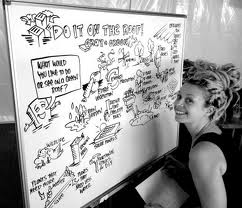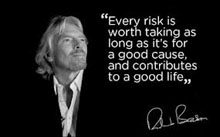
Memory is the ability of the mind to store what it perceives, whether it is from sensory perception or from events created in the mind like dreams, thoughts, or decisions.
The good news is that everyone can improve their memory. Memory is made, not born. Like any muscle, the more you exercise it, the better it gets. By employing the right techniques, you can take your memory to a level you never thought before. Below listed are 11 ways that can help you improve your memory and enhance your mind.
11 Mind & Memory Boosting Techniques
1. Food, Herbs & Exercise

The good news is that everyone can improve their memory. Memory is made, not born. Like any muscle, the more you exercise it, the better it gets. By employing the right techniques, you can take your memory to a level you never thought before. Below listed are 11 ways that can help you improve your memory and enhance your mind.
11 Mind & Memory Boosting Techniques
1. Food, Herbs & Exercise

Research on memory improvement indicates a healthy lifestyle–including exercise, regular social interactions and healthy eating habits–can help prevent memory loss. Studies on herbs and foods for memory are beginning to show that some foods and herbs are more effective than others. Including these possible memory enhancers in your diet could give you a cognitive boost.
Some of the best brain food and herbs are as follows: Grapes, Berries, Walnuts, Fatty Fish, Seeds, Ginko Biloba and Rosemary.
Just 5 minutes or more of quick exercise is enough to stimulate the receptors in your brain.
2. Positively Memorable

Some of the best brain food and herbs are as follows: Grapes, Berries, Walnuts, Fatty Fish, Seeds, Ginko Biloba and Rosemary.
Just 5 minutes or more of quick exercise is enough to stimulate the receptors in your brain.
2. Positively Memorable

In order to succeed in anything, including supercharging your memory, you need to cultivate a strong belief compatible with success. So what are beliefs? Beliefs are thoughts that you hold to be true. For example, “the sky is blue” is a statement you accept as true.
Inside your mind, you hold all types of beliefs. You have beliefs about your environment, whether it is safe or dangerous. You have beliefs about people, whether they are fun or boring. Above all, you have beliefs about yourself and your abilities, whether you are smart, adept, and admirable or dumb, inept, and worthless.
3. Associating With The Right Crowd

Inside your mind, you hold all types of beliefs. You have beliefs about your environment, whether it is safe or dangerous. You have beliefs about people, whether they are fun or boring. Above all, you have beliefs about yourself and your abilities, whether you are smart, adept, and admirable or dumb, inept, and worthless.
3. Associating With The Right Crowd

One useful technique is associations. An association is connecting a topic you want to remember with something you already know or with something that may prove easier to learn.
Associations are effective because everything you know, every idea you have, and every thought in your head is linked to or associated with other thoughts and ideas. As you can see, your thoughts are not stored individually. Rather, they are linked together like an intricate web.
4. Play The Brain Game: Lumosity

Associations are effective because everything you know, every idea you have, and every thought in your head is linked to or associated with other thoughts and ideas. As you can see, your thoughts are not stored individually. Rather, they are linked together like an intricate web.
4. Play The Brain Game: Lumosity

Sign up to the brain games website Lumosity. This is a fun and challenging tool that will help improve your attention, speed, flexibility, problem solving and memory.
Researchers have measured significant improvements in working memory and attention after Lumosity training.
5. Visualization

Researchers have measured significant improvements in working memory and attention after Lumosity training.
5. Visualization

Visualization is a key element in memory. That is because the mind is a visual machine. It thinks not only in words, but pictures. When you have a thought or idea, images run in the background to help you make sense of that thought. When you give directions, you are able to do so from the image of the neighbour-hood you have inside your head.
Most, if not all, of your thoughts are connected to mental images in some way – even if you are not consciously aware of them.
6. Repeat After Me

Most, if not all, of your thoughts are connected to mental images in some way – even if you are not consciously aware of them.
6. Repeat After Me

Repetition is repeating information that you want to remember. It is presenting to your mind a thought, idea, or other material over and over again to make it stick. For example, if you want to remember a new ATM PIN, you would repeat 5689, 5689, 5689 in your thoughts or out loud until it becomes engraved in your mind. This is the essence of repetition.
Although basic, repetition is quite powerful. In fact, it is the most effective way to remember information. Most, if not all, learning uses repetition in one form or another.
7. Take notes

Although basic, repetition is quite powerful. In fact, it is the most effective way to remember information. Most, if not all, learning uses repetition in one form or another.
7. Take notes

Taking notes is the act of jotting down any piece of information you want to remember. The information can be jotted in a notebook, on a sticky pad, in a smart phone, on your refrigerator, in a tablet, or just about anywhere else you can think of.
Evernote is a great app to store all of your notes, pics and links when a great idea sparks.
8. Memory & Comprehension

Evernote is a great app to store all of your notes, pics and links when a great idea sparks.
8. Memory & Comprehension

There is a strong correlation between memory and comprehension. The better you understand something, the easier it is to remember. Certainly you can memorize words from foreign language you don’t know the meaning, or memorize a string of symbols you cannot even pronounce, but this proves to be far less effective than learning something you can understand.
Learning through comprehension is more permanent and more useful than memorization by rote.
9. Conquering Forgetfulness
Imagination and humor can help lock an important memory in place so that you do not forget. Let us say that you have an appointment with an important potential client, Mr. Patel, this coming Thursday. If you enjoy watching television every night, imagine Mr. Patel acting like a clown, coming out of your TV screen saying, “See you on Thursday!” You might even imagine Mr. Patel replacing one of your favorite characters on a Wednesday night program. Add more staying power to this by imagining Mr. Patel on TV crossing the desert, thirsty (sounds like “Thursday”) for water. Such funny or outrageous images can help trigger the needed memory.
The more outrageous and funny you make the image, the better.
10. Pay attention

Learning through comprehension is more permanent and more useful than memorization by rote.
9. Conquering Forgetfulness
Imagination and humor can help lock an important memory in place so that you do not forget. Let us say that you have an appointment with an important potential client, Mr. Patel, this coming Thursday. If you enjoy watching television every night, imagine Mr. Patel acting like a clown, coming out of your TV screen saying, “See you on Thursday!” You might even imagine Mr. Patel replacing one of your favorite characters on a Wednesday night program. Add more staying power to this by imagining Mr. Patel on TV crossing the desert, thirsty (sounds like “Thursday”) for water. Such funny or outrageous images can help trigger the needed memory.
The more outrageous and funny you make the image, the better.
10. Pay attention

One of the primary causes of poor memory is lack of attention. When you don’t pay attention, your mind does not receive the information. If your mind is not able to receive information, it is not able to remember it. To illustrate, say you are in a meeting and your boss is discussing an upcoming report that is due. If you are day dreaming about what you are going to do this weekend, you won’t “hear” his words. If you don’t actually hear his words, how can those words be stored in memory? Your mind cannot store that which it does not receive.
11. Clusters

11. Clusters

A concept similar to acronyms and acrostic is clustering. Clustering is a method of breaking long pieces of information into smaller groups. For instance, a phone number in the United States uses a very specific pattern of clustering—(999) 555-1234. The numbers are grouped into 3 clusters and no one cluster is more than four digits long. Grouping numbers like this is far easier to remember than “9995551234.”
You can use clustering not just with numbers, but also words. Trying to remember the spelling of the word supercalifragilisticexpialidocious from the Disney movie, Mary Poppins, is a monster that makes the eyes glaze over with disinterest or even dread. However, if you divide the word up, it’s easy to conquer. First, learn “super,” then “cali,” “fragi,” “listic,” “expi,” “ali,” and finally, “docious.” It’s not so dreadful in smaller pieces. Simply learn the smaller pieces and then put them together.
You can use clustering not just with numbers, but also words. Trying to remember the spelling of the word supercalifragilisticexpialidocious from the Disney movie, Mary Poppins, is a monster that makes the eyes glaze over with disinterest or even dread. However, if you divide the word up, it’s easy to conquer. First, learn “super,” then “cali,” “fragi,” “listic,” “expi,” “ali,” and finally, “docious.” It’s not so dreadful in smaller pieces. Simply learn the smaller pieces and then put them together.



















 One of the most successful people that we all know and love is none other than Walt Disney. Walt Disney is the famous voice and creator of Mickey Mouse and the founder of Disneyland. His achievements in the world of animation garnered him multiple awards and international fame.
One of the most successful people that we all know and love is none other than Walt Disney. Walt Disney is the famous voice and creator of Mickey Mouse and the founder of Disneyland. His achievements in the world of animation garnered him multiple awards and international fame. The first thing that we can learn from Disney as an entrepreneur is his love for drawing. He loves to draw so much that he draws in his spare time and he even draws while working as an artist. He devoted most of his life to his art that he was even willing to work other jobs just to fund his passion.
The first thing that we can learn from Disney as an entrepreneur is his love for drawing. He loves to draw so much that he draws in his spare time and he even draws while working as an artist. He devoted most of his life to his art that he was even willing to work other jobs just to fund his passion. Whenever Walt Disney made his cartoons he always did so with the focus of a lion stalking his prey. He always paid attention to every detail and dealt with things with the utmost care. He never took his art and talent for granted.
Whenever Walt Disney made his cartoons he always did so with the focus of a lion stalking his prey. He always paid attention to every detail and dealt with things with the utmost care. He never took his art and talent for granted. Whenever Walt Disney created animated shorts back then he never did it just for himself; he never hid his creations from the world, but instead he would always find ways in which he could share his work with others.
Whenever Walt Disney created animated shorts back then he never did it just for himself; he never hid his creations from the world, but instead he would always find ways in which he could share his work with others. One thing that you would definitely notice about Walt Disney is that after one accomplishment he would immediately start on another project. After finishing his legendary film “Snow White and the Seven Dwarves”, Disney immediately went to work on other feature films such as “Bambi”, “Fantasia” and many others.
One thing that you would definitely notice about Walt Disney is that after one accomplishment he would immediately start on another project. After finishing his legendary film “Snow White and the Seven Dwarves”, Disney immediately went to work on other feature films such as “Bambi”, “Fantasia” and many others. When Walt Disney first started to work on Snow White, his wife and own brother did all they could to convince him to stop. The Snow White project was even termed as “Disney’s Folly”, and halfway across production he ran out of money to continue the work.
When Walt Disney first started to work on Snow White, his wife and own brother did all they could to convince him to stop. The Snow White project was even termed as “Disney’s Folly”, and halfway across production he ran out of money to continue the work.













